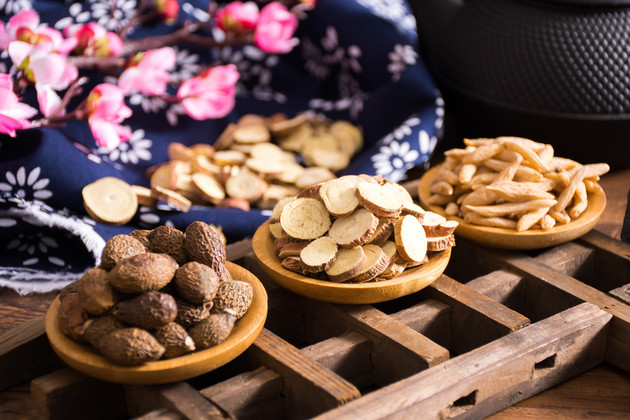
Photo/Shetuwang
Apr. 26 (NBD) -- In the movie Gua Sha (Scraping Therapy), the grandfather came from mainland China to visit his son in the U.S. and applied the scraping therapy on his 5-year-old grandson who was having a fever.
As the treatment left painful-looking red splotches in the skin, the family were later accused of child abuse by local authorities in the U.S.
The movie produced in 2001 miniatures the major obstacle in the internationalization course of the traditional Chinese medicine (TCM), that is, how to explain the empirical evidence-based TCM to western communities that are accustomed to therapies built on anatomy.
On Thursday, the two-day International Forum on Traditional Chinese Medicine (TCM) and Botanical Medicine kicked off in Shenzhen, where drug administration officials, new drug researchers from the European Union as well as Chinese academicians, TCM experts discussed about standardization, modernization and internalization of the traditional Chinese medicine.
One of the Chinese treasures, TCM is increasingly in need and recognized by the international community.
Customs data showed that the import-export value of TCM products increased 10.99 percent year on year to 5.768 billion U.S. dollars in 2018, among which the export of such products was worth 3.909 billion U.S. dollars, up 7.39 percent year over year.
Zhou Luming, co-chairman of the above-mentioned forum said to the 21st Century Business Herald that with R&D of new chemicals getting harder and harder, an growing number of people turn their eyes on traditional medicine.
Gerhard Franz, chairman of Herbal Medicine Committee, German Pharmacopoeia, echoed Zhou's view, saying that people are starting to take a keen interest in TCM. Many institutions, especially those in European countries, are referring Chinese herbal medicine to the European Pharmacopoeia Commission, Franz added.
To date, a slate of standards for Chinese herbs have been included into pharmacopoeias of the U.S. and the Europe.
However, differences in culture, philosophy, norm, technology and other aspects between China and western countries still pose challenges to TCM internationalization.
"Quality control and test methods and scientific proof of product quality and efficacy are the major pain points awaiting urgent solutions in TCM's global expansion," noted Wang Mei, an expert member of the European Pharmacopoeia Commission.
Franz called for close cooperation between the TCM industry and government officials to identify goals and locate best operational approaches to nail down the processing procedures of traditional herbs. "Safety, efficacy and quality are crucial," underlined Franz.
Email: gaohan@nbd.com.cn


 川公网安备 51019002001991号
川公网安备 51019002001991号





